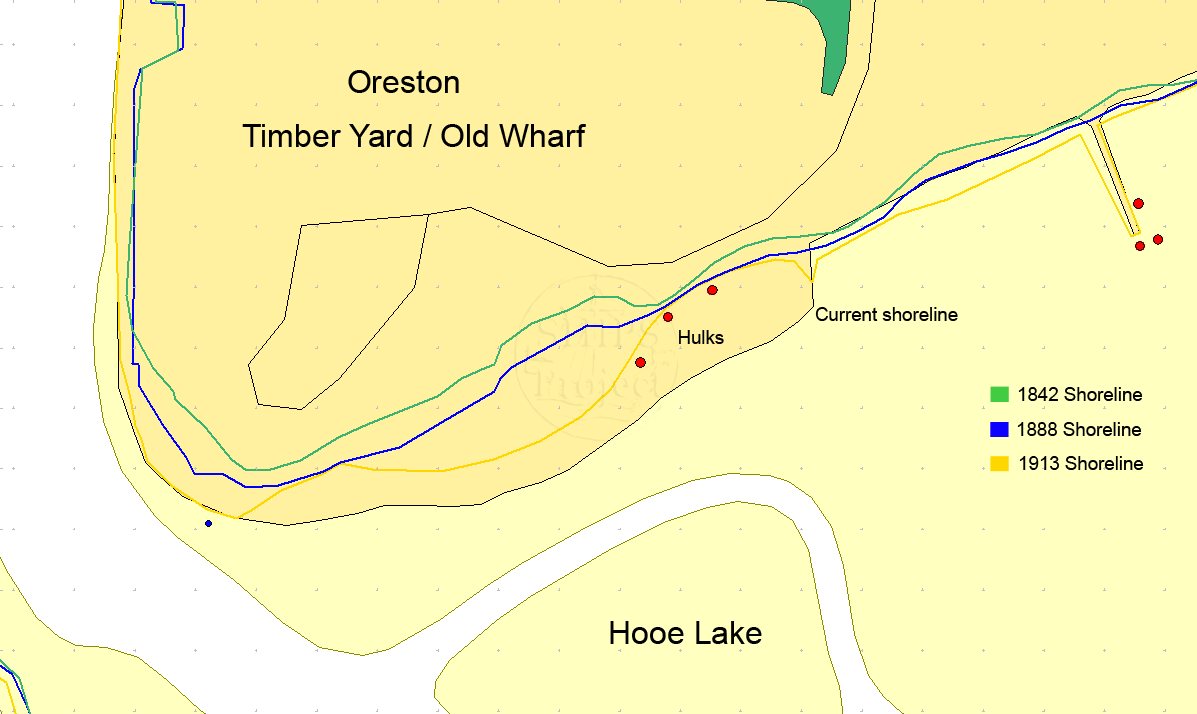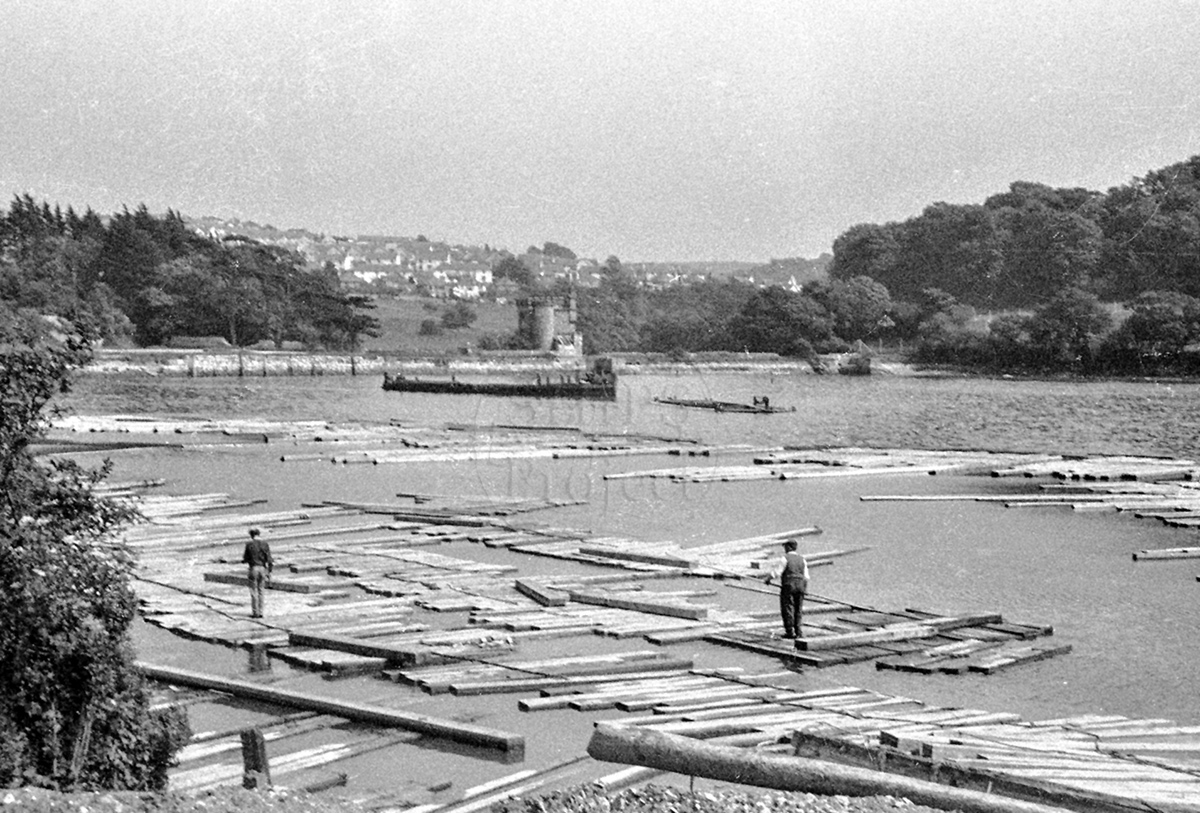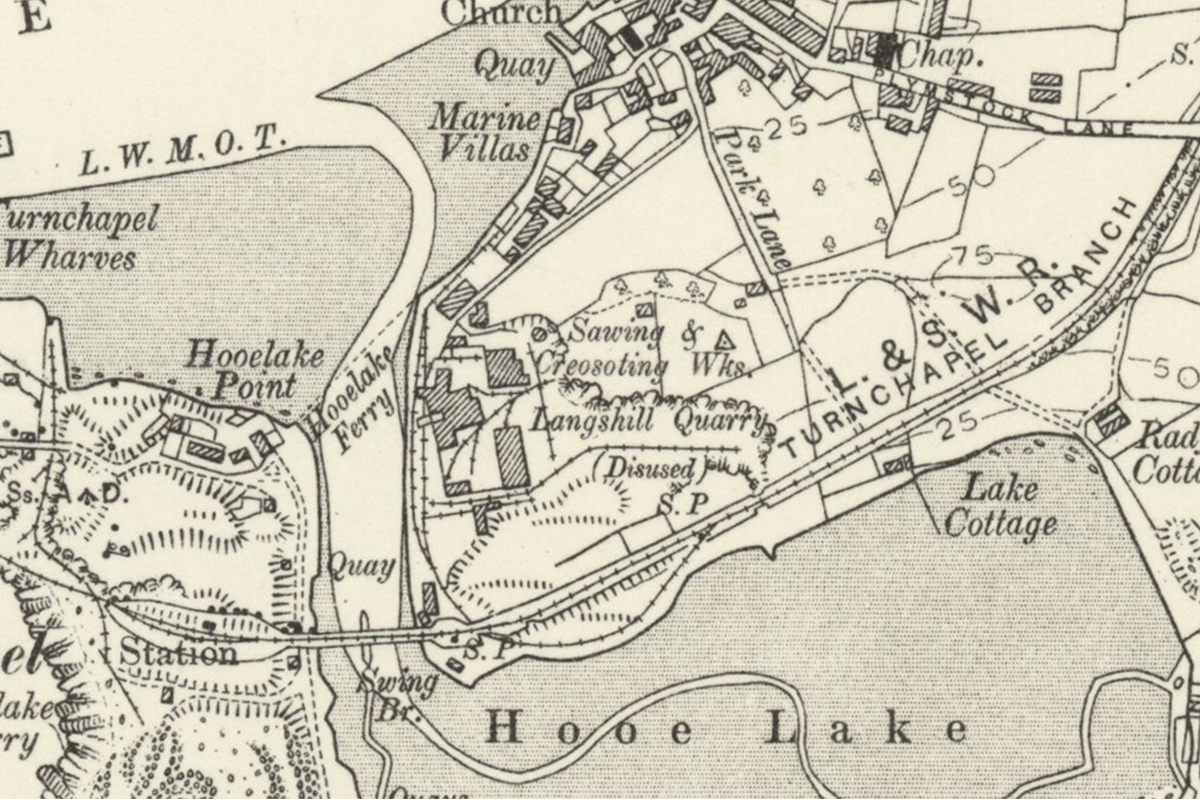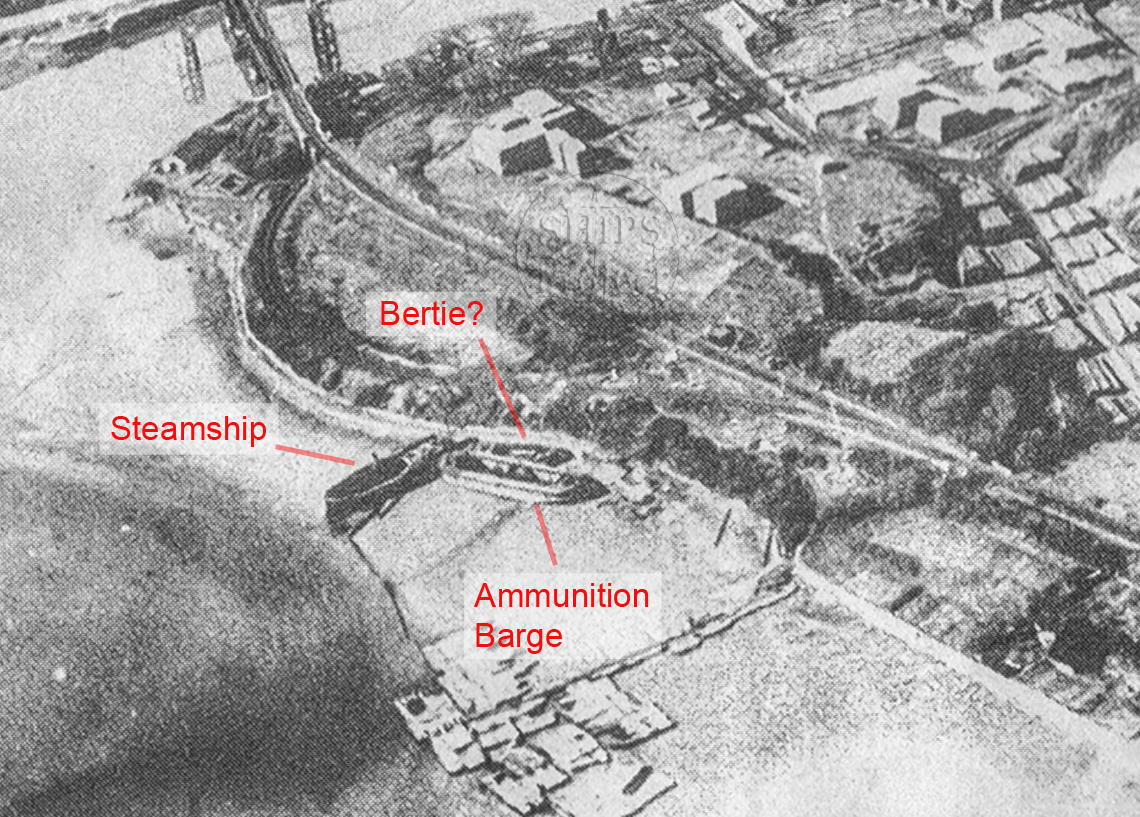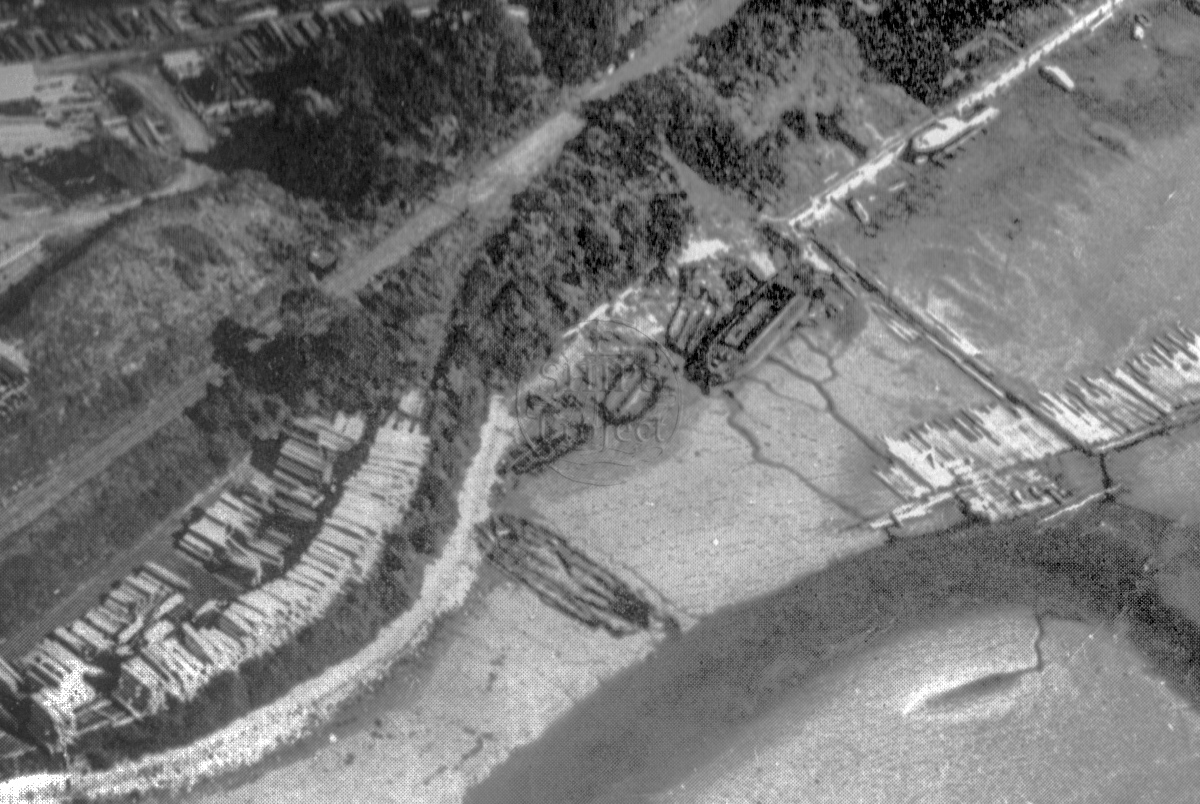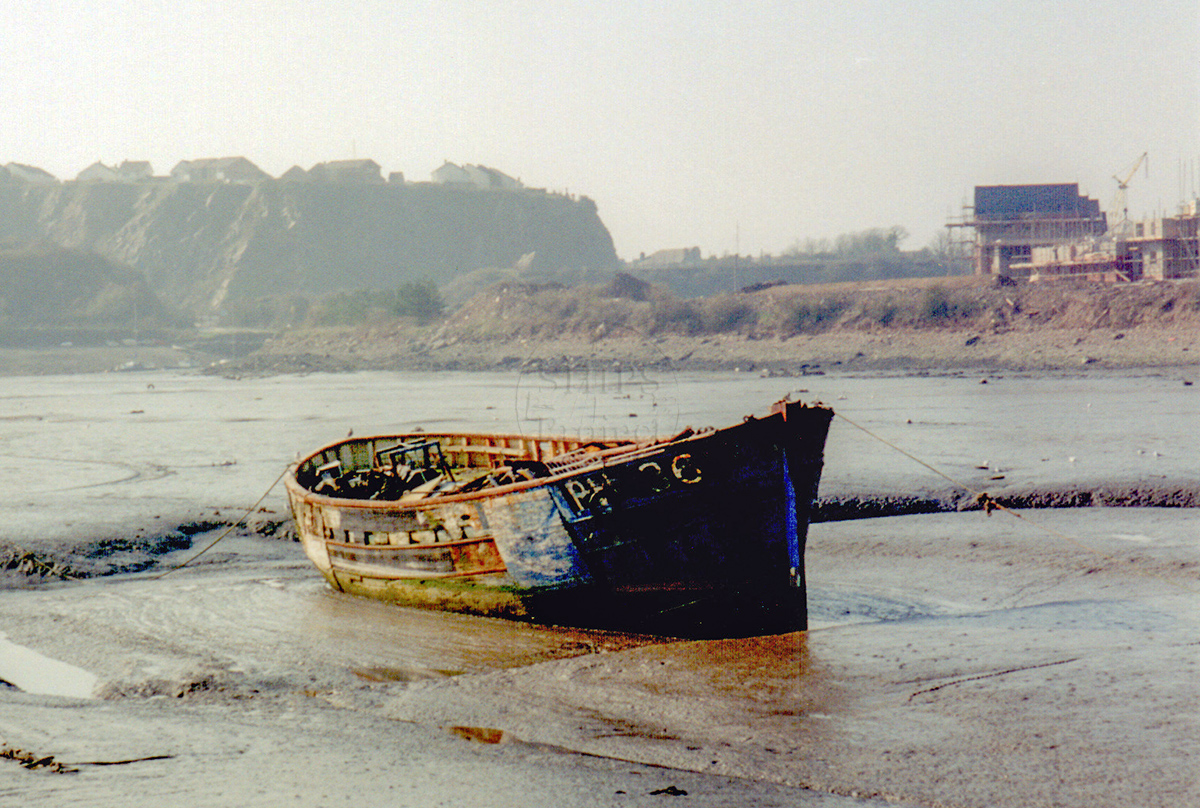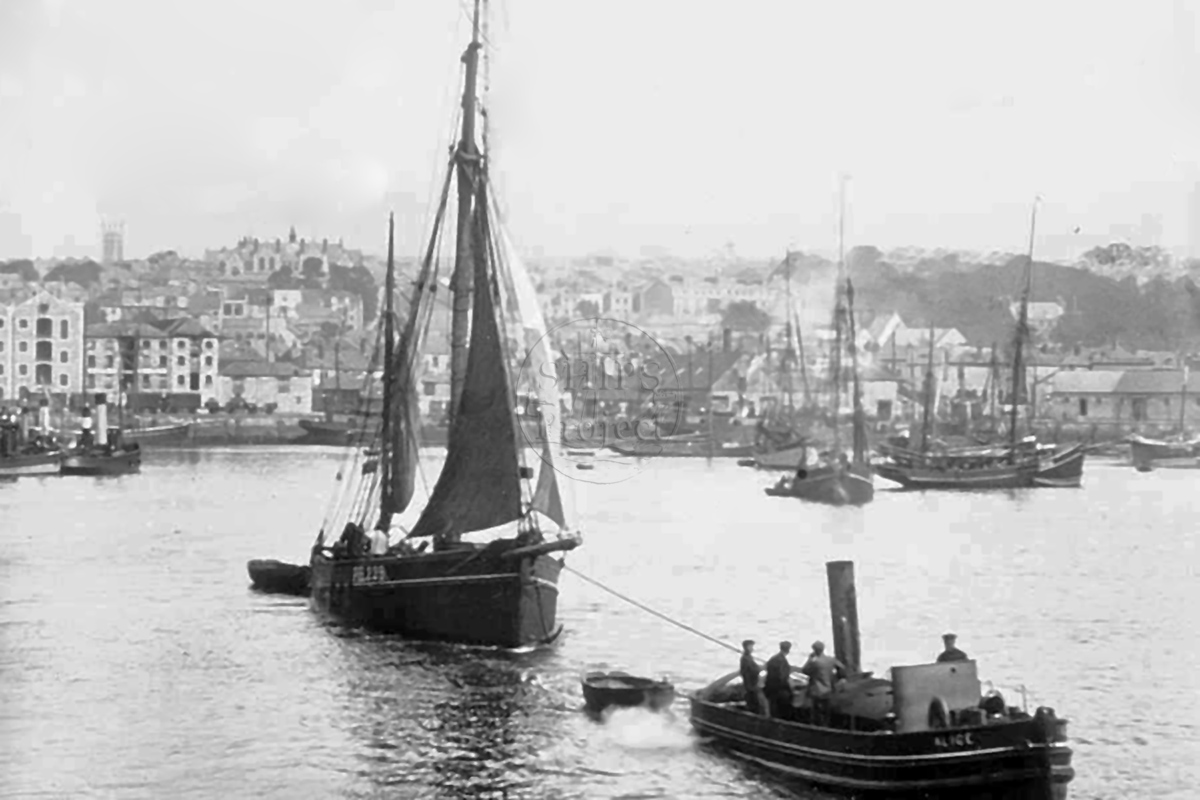Not Set
Langley and Small in their book Lost Ships of the West Country note that three vessels were abandoned on the north shore of Hooe Lake; the schooner Dolphin ![]() , the Tamar barge Bertie
, the Tamar barge Bertie ![]() and an unidentified steamship.
and an unidentified steamship.
Figure 1 has been approximately dated to 1959, this shows the unknown steamship lying with her bow towards the foreshore, a steel ammunition barge similar to Laira Bridge 1 ![]() lying parallel to the shore and another vessel on the beach behind the barge. The hulk on the beach behind the barge is approximately the correct size and shape to be the remains of a Tamar barge and perhaps this is the Bertie. The Tamar barge Bertie was built in 1883 by David Banks at Queen Anne’s Battery in Sutton Harbour, just over the water from where she was abandoned in Hooe Lake sometime after her register was closed in 1928. Confusingly, this small Tamar barge called Bertie was abandoned in Hooe Lake just a short distance from the much larger Thames spritsail barge called Bertie
lying parallel to the shore and another vessel on the beach behind the barge. The hulk on the beach behind the barge is approximately the correct size and shape to be the remains of a Tamar barge and perhaps this is the Bertie. The Tamar barge Bertie was built in 1883 by David Banks at Queen Anne’s Battery in Sutton Harbour, just over the water from where she was abandoned in Hooe Lake sometime after her register was closed in 1928. Confusingly, this small Tamar barge called Bertie was abandoned in Hooe Lake just a short distance from the much larger Thames spritsail barge called Bertie ![]() .
.
The name or type of the steamship is as yet unknown, but she is approximately 20m long with a beam of 4m, no wheelhouse and carries a single funnel amidships. Previous researchers have so far not come up with a name for the unidentified steamship, however we believe that it may be the steam tug Alice ![]() that was used to tow the timber lighter Arthur
that was used to tow the timber lighter Arthur ![]() that still lies in the middle of the lake.
that still lies in the middle of the lake.
The remains of the schooner Dolphin reported by Langley and Small are not visible in this photograph. The stories of many of these hulks has become confused over time so the schooner may in fact be the hulk Hooe Lake 3, see Hooe Lake Mystery Ships ![]() for more information.
for more information.
Figure 2 is from 1963 and by now the unknown steamship has been flattened, the barge has moved and the remains of Bertie (?) and the bottom of at least two other vessels can be seen. Note the stacks of timber stored on the now disused railway spur to the timber yard.
The foreshore where the hulks were abandoned was for many years part of Bayly's timber yard, then it became Boston's boatyard and now it is part of a housing estate. The original northern foreshore of the lake was buried under landfill in 1897 when land was reclaimed to run the L&SWR railway siding into the timber yard.
It is thought that the bow of the decommissioned trawler Atlantis is also buried on the foreshore on the North side of Hooe Lake.
Burial under Landfill
When the Old Wharf housing estate was built in 1996 the north bank was further reinforced, moving the shoreline between 12 and 25m in to the lake, burying more of the foreshore and any evidence of hulks that were beached there. So it is likely that the remains of the Dolphin, Bertie and the steamship now lie under the new houses along The Old Wharf. It is also possible that older vessels lie beneath the landfill deposited when building the railway spur to the timber yard in 1897, see figure below.
Last updated 23 May 2021
Information about Bertie
Date Built:
1883
Type:
Tamar barge
Builder:
David Banks and Co., Queen Annes Battery, Plymouth
Official Number:
86511
Length
46.2ft / 14.08m
Beam
14.1ft / 4.3m
Depth in Hold
4.7ft / 1.43m
Construction
Timber, carvel
Propulsion
Sail, smack rig
Tonnage
15.66 GRT
Portmarks
None
Abandoned
Between 1928 and 1959
Reference
Unknown
Bayly Bartlett Timber
The Plymouth and Oreston Timber Company yard covered ten acres of the eastern side of the entrance to Hooe Lake, around into the north side of the lake itself with six acres of foreshore, locally known as the 'pickle yard'. Timber would be offloaded in the Cattewater, formed into rafts and towed into the Lake. The Oreston yard was used for treating timber with preservatives or impregnating sleepers and telegraph poles with creosote. In 1957 a merger made the company Bayly Bartlett which operated on the site until 1992.
Not Set
Leave a message
Your email address will not be published.
Click the images for a larger version
Image use policy
Our images can be used under a CC attribution non-commercial licence (unless stated otherwise).
